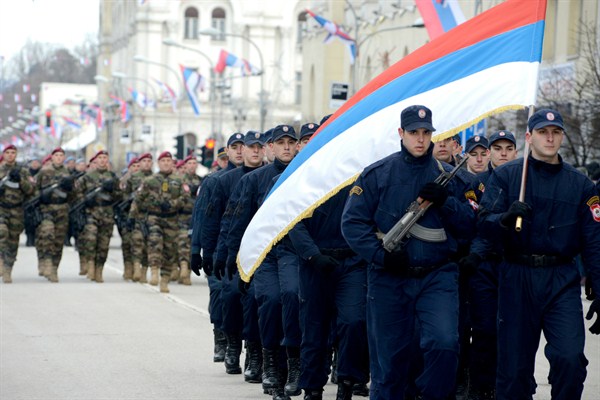Fears of another war are growing in Bosnia and Herzegovina as xenophobia and nationalist rivalries surge in the largely autonomous and Serb-dominated entity of Republika Srpska. Observers are warning that a growing separatist movement in the territory threatens the terms of the Dayton Accords that ended the Bosnian War of the 1990s.
That conflict killed more than 100,000 people and displaced some 1 million civilians through interethnic violence between Catholic Croats, Bosnian Muslims—or Bosniaks—and Orthodox Christian Serbs. Republika Srpska, the majority-Serb enclave of Bosnia and Herzegovina that was formalized by the U.S.-brokered Dayton Accords, virtually cleansed the bulk of its territory of Croats and Bosniaks during the conflict. More than two decades later, the siege of Sarajevo and the massacre at Srebrenica still evoke horrifying images of the war crimes committed.
A former member of the Croatian parliament is gathering support for what he says may be the only workable way to avoid further escalation and ensure long-term peace. The plan put forward by the former Croatian lawmaker, Ivan Bagaric, calls for fast-tracking Bosnia and Herzegovina’s membership in the European Union and demilitarizing the country. Bosnia formally applied for EU membership last year, and its application was accepted by the bloc’s 28 member states in September.

